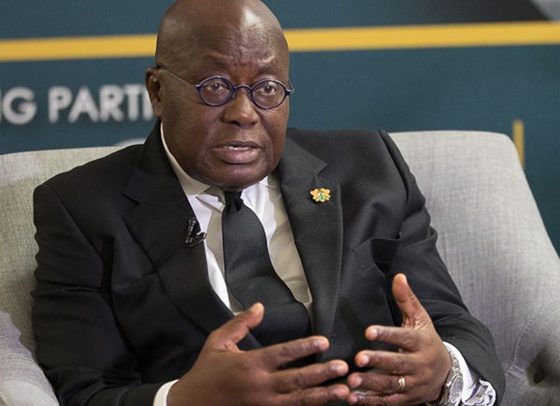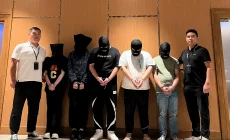Prez. Akufo-Addo challenges US, China, India, others to join ICC
- Posted on
- Comment

President Akufo-Addo thinks the time has come for some of the big countries across the world like the USA, China, India, and the rest to sign up for the International Criminal Court (ICC) to give it universal jurisdiction.
As it stands, he believes the Court is somehow handicapped in terms of its coverage and jurisdiction for which reason all nations must sign up to it.
“If we are going to prevent things like what is happening in Ukraine or what is recently taking place in Armenia and Azerbaijan from taking place, we do so by strengthening the work of the court. The more universal in jurisdiction it has, the better for the workings of the Rome Statute”, was how he put it.
This was when President of the ICC, Piotr Hofma?ski paid a courtesy call on him at the Jubilee House in Accra Tuesday evening.
Hofma?ski is in the country to deliver a paper at the GIMPA Law School in Accra.
President Akufo-Addo assured that Ghana supported the work of the ICC because it “wants a world where impunity in the exercise of executive power is as much as possible curtailed.”
Apart from that, he said “we a want a society where liberty, freedom, respect for law, respect for each other becomes the guiding principles of the collective body politic of our various nations. I think that the extent to which the Rome Statute and the institutions that it has set up is working towards that end that should be supported,” he added.
He therefore noted that the work of the ICC had the full support of Ghana and could be described as one of the few areas that enjoyed broad political support because the Ghanaian Parliament that ratified the treaty in 1999 was a House dominated by the National Democratic (NDC).
As soon as the New Patriotic Party (NPP) came to power in 2000, he indicated that as the Minister of Justice at the time, he traveled to Rome for the ceremony that brought the treaty into effect adding that the Rome Treaty has enjoyed broad national support and had never become a tool for domestic politics, attributing the reason for the support from both sides of the political divide to a commitment to building a nation with democratic principles, accountability and support for the rule of law in the last 30 years.
President Akufo-Addo expressed surprise that certain offences under the Rome statutes have not been domesticated many years down the line.
But Attorney General and Minister of Justice, Godfred Yeboah Dame, was on hand with an explanation.
There and then, the President instructed him to do so to ensure that crimes against humanity, war crimes and crimes of aggression would be incorporated into the nation’s laws.
With that, he was confident that if a Ghanaian national was involved in some of these States crimes, the person would have the possibility of being tried by his or her own municipal courts in Ghana and so that the idea of being hauled before the ICC in The Hague would be just the last resort and not the first option.
On his part, President of the ICC, Hofma?ski described Ghana’s support for the ICC as very strong because it was one of the first countries in the world to signed the agreement and had remained so till date.
He revealed that the court was currently dealing with 16 cases spread across all continents of the globe so it was not the case that the ICC was concentrated on the African continent alone and that the investigator’s offices are dealing with cases from Myanmar, Palestine, Afghanistan, Columbia, Venezuela, Georgia and Ukraine which was an indication that the court was becoming universal to close the gap of impunity.
He however admitted this was not enough and thus called for support to ensure that it becomes more universal.
The ICC remains to date, the most successful form of inter-State collaboration on the establishment of a system of international criminal justice to investigate, prosecute and try perpetrators of mass crimes of concern to the international community.
The origins of this system of international criminal justice date back to the Nuremberg and Tokyo military tribunals which were set up at the end of the Second World War to try specific cases of international concern.
The resurgence, around the World particularly in Yugoslavia, Rwanda, and Liberia, of mass atrocities that shocked the conscience of humanity, convinced the world to provide a permanent solution for the prosecution of international crimes, to aid in the fight against impunity instead of the old ad hoc responses.
Against this background, on 17 July 1998, the international community adopted the Rome Statute – the founding treaty of the International Criminal Court, to provide for a permanent jurisdiction set up to prosecute crimes of genocide, crimes against humanity, war crimes and crimes of aggression.
By Charles Takyi-Boadu, Presidential Correspondent










 (Selorm) |
(Selorm) |  (Nana Kwesi)
(Nana Kwesi)